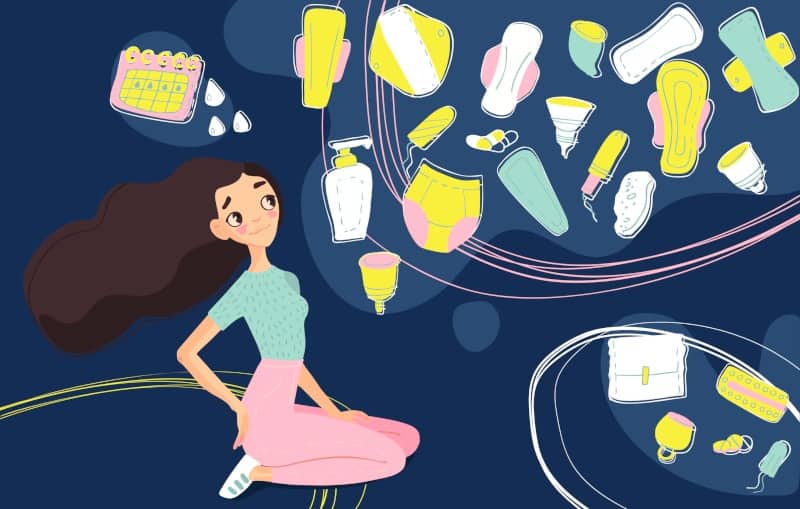Pediatricians must educate girls about menstruation. Period.
The American Academy of Pediatrics recommends that pediatricians routinely educate girls about menstruation and feminine hygiene. However, a recent study investigating pediatricians’ knowledge and professional practices surrounding menstrual health found that many girls do not receive menstrual health education from their providers.
By Miriam Singer
It is essential that girls receive menstrual health education for many reasons. First, girls who possess a greater understanding of menstruation experience less anxiety surrounding menstruation. Additionally, they are better prepared to both identify menstrual issues, such as abnormal vaginal bleeding, and share these concerns with their providers. Finally, knowing how to use feminine hygiene products reduces the serious risks that these products can pose if used incorrectly, such as Toxic Shock Syndrome.
Thus, leaders in the medical field have recommended that pediatricians routinely discuss menstruation and feminine hygiene with their female patients. This is particularly important given that many parents do not discuss these topics with their daughters and many schools do not adequately address the topic, meaning pediatricians may be a primary knowledge source.

A recent study, conducted by researchers at Cohen Children’s Medical Center in New York and published in the International Journal of Adolescent Medicine and Health, investigated pediatricians’ practices surrounding menstrual health education. The researchers developed an online survey, completed by over 500 pediatricians nationwide, that asked them to self-report their likelihood of educating female patients about a range of topics related to menstrual health. The survey also asked pediatricians questions aimed at assessing their own knowledge regarding topics in menstruation and feminine hygiene.
The survey results revealed that a high percentage of pediatricians in the U.S. do not routinely educate their female patients about menstruation-related topics. For example, approximately 1 in 4 pediatricians do not provide guidance surrounding menstruation to girls who have not yet experienced menstruation, and 1 in 3 do not discuss menstruation with girls who have. Additionally, 1 in 4 do not routinely ask patients for the date of their last menstrual period. Moreover, the researchers found that many pediatricians demonstrate significant knowledge gaps in this clinical area. According to Miriam Singer, a Harvard Medical School student and lead researcher of the study, these knowledge gaps “may further impede pediatricians’ ability to effectively evaluate menstrual concerns and adequately educate patients.”
These findings suggest that many girls may not be receiving adequate information related to menstrual health from their providers. It is crucial that pediatricians take active steps to educate patients about menstruation and feminine hygiene in order to improve the health of young females nationwide.
To find out more, read the original article here: